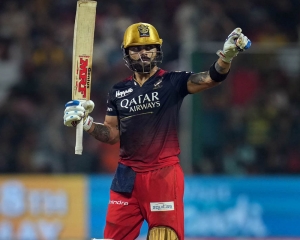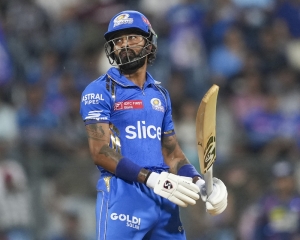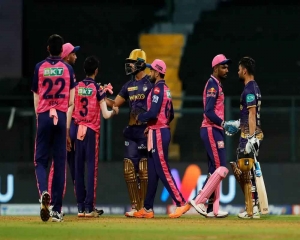While Manmohan Singh failed to bring a sea change in India-Pakistan ties due to the lack of support from his own party and the Opposition, Narendra Modi must not lose the opportunity that has been presented
Prime Minister Narendra Modi’s surprise visit to lahore should be seen as a timely and significant step towards creating a logical reality which no sane person in India, Pakistan or the entire sub-continent can ignore. We need to shun any grandiose vision of a union between India, Bangladesh and Pakistan. Instead, emphasis at this stage should be on taking the first steps towards a healthy, friendly and mutually respectful relationship between countries of the South Asian Association for Regional Cooperation, in which, the relationship between India and Pakistan forms the very core of the future of South Asia.
The European Union is by far the most compelling example today of neighbouring countries forming an economic and quasi-political union, which culminated from the construction of mutual trust and acceptance of mutual interest among nations that fought bloody wars through several centuries of hostility. However, the EU, which even today faces some fissiparous pressures, did not come about overnight and hardly happened by design. What is today the EU germinated initially in the form of the European Coal and Steel Community with participation by Germany, Belgium, France, the Netherlands, Italy and luxemburg.
This entity was established in 1952, and was essentially the outcome of a common desire to ensure that in the re-building of Europe, the coal and steel industries in the countries involved would be able to withstand competition from elsewhere. It was for this reason that Britain was initially kept out of this community. The ECSC led to several other bodies being added to support the common economic interest of the members of this body, with gradual expansion of membership as well. The rest, as they say, is history. It was in 1992, a full 40 years later that the Maastricht Treaty came into existence, which brought about the first concrete steps towards European integration.
Mr Modi’s opening to Pakistan, which has received widespread support from across the world, and most definitely from Pakistan, now needs to give way to some concrete measures by which in the short-term at least the abysmal trade between India and Pakistan can be built up along with cultural, academic and business relationships.It is pathetic that direct trade between India, Pakistan is well below three billion dollars per year. Even more unsatisfactory is the fact that trade takes place through third countries, mainly Dubai and the United Arab Emirates, at about 3.5 to four billion. After almost seven decades of partition, these facts are a sad commentary on the neglect of mutual economic interest, which have remained hostage to political and religious bigotry.
Political leaders on both sides must now change their priorities and actions, and so must the public at large. However this will not happen unless there is freer movement of people and ideas across the border.For several years now, there has been a growing realisation among professionals in the countries of the region that there would be enormous win-win opportunities in integration of energy supply across South Asia. Neglect of this reality led, for instance, to the lost opportunity of the Iran-Pakistan-India gas pipeline. This project was initially conceptualised by Ali Shams Ardekani of Iran (later Deputy Foreign Minister of Iran) and myself way back in 1989.
At that stage, Iran was willing to offer extremely favourable terms. Despite a rigorous exercise in arriving at a robust contractual framework with the involvement of prominent politicians from India, Nepal and Pakistan, age-old suspicions and animosity between India and Pakistan came in the way of this project taking off. We now see the initiation of the Turkmenistan-Afghanistan-Pakistan-India pipeline, and it is hoped that this will be implemented rapidly, despite several problems that it faces. It is also hoped that at the same time, other initiatives are taken in hand for an integrated energy market in Saarc.
The people and leadership of India and Pakistan should avoid the experience of bitter relations between the US and Iran, following the Iranian revolution of 1979. Isolating Iran and not treating it as a serious presence in the West Asia, if not in Asia, has been a major flaw of the US foreign policy. About 15 years ago, I held a conversation with the then Under Secretary of State from the US Administration responsible for the US policy towards South Asia and Iran. I urged him to open a dialogue with the Iranian Government, given the fact that Iran is an ancient civilisation, with a sizeable population today, a large part of which wants normal relations with the US and a democratic system.
The situation of bilateral relations between India and Pakistan is different from that between the US and Iran, but in Pakistan also, a large section of the population wants normalisation of relations with India, and feels that as long as there is animosity between the two countries, terrorism will thrive in Pakistan with serious implications for security of Pakistanis themselves. If there is an issue that requires widespread political support in India, it is the challenge of improving bilateral relations with Pakistan. It is sad that the efforts of former Prime Minister Manmohan Singh did not get the support from his own party as well as the Opposition, which would have enabled him to carry forward the initiative that he had undertaken.
The Energy and Resources Institute has not projected the fact that when Mr Singh became the Prime Minister of India, the Chief Minister of Punjab in Pakistan decided to develop his birthplace village Gah in Chakwal as a model village. Teri then took the initiative of providing a large number of solar energy devices for that village. A team from this institute worked over the years to see that these devices functioned properly, and this has received deep affection and appreciation from the entire population of the village. If all the political parties had encouraged Mr Singh, he would have been able to visit his birthplace and bring about a sea change in relations between the two countries.
Mr Modi’s initiative now requires active follow up in concrete terms, and the most suitable initiative that India could undertake is to first bring about cooperation in the energy sector and ensure that Pakistan which has serious power problems is able to purchase electricity from India as well as solar equipment that could be used on a decentralised basis in rural parts of Pakistan as well as through a major rooftop solar programme in the towns and cities.
Following up on this, similar cooperation could be extended to include Nepal, Bhutan and Bangladesh, with an integrated power grid which would provide economic benefits to each country. It is hoped that India will be able to propose a concrete arrangement for collaboration and partnership in the energy sector, which should be implemented by involving not only Government departments on both sides but also business and research organisations to create a platform of collaboration which is durable and comprehensive.
(The writer is director-general, The Energy and Resources Institute)

























